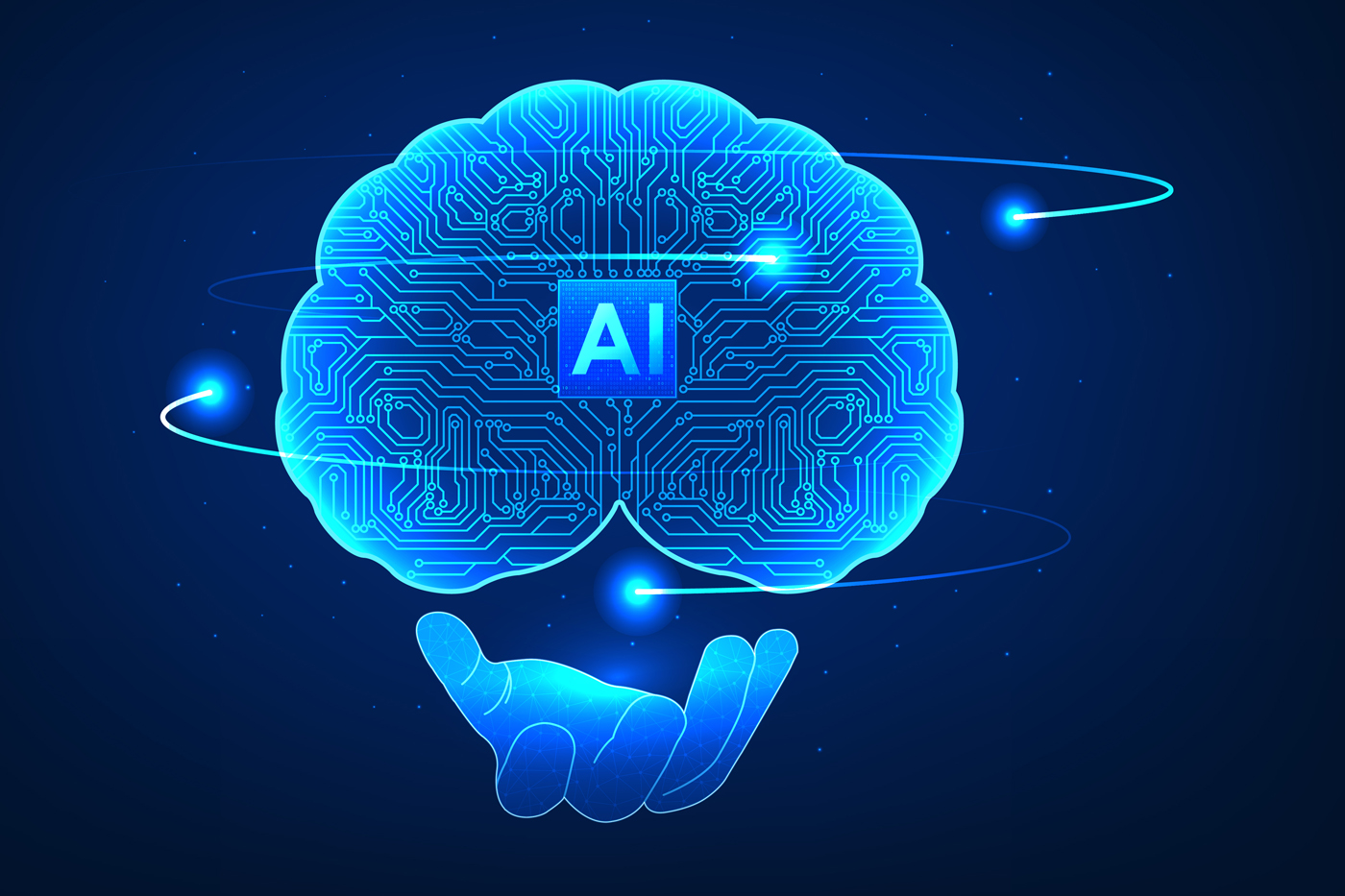AI and Critical Thinking: Enhancing Problem-solving Skills in the Age of Machines
The future of banking is smarter, more ethical, and more human.
The future of banking is smarter, more ethical, and more human.
 By Derek Ariss
By Derek Ariss
Artificial intelligence (AI) is a rapidly evolving field that, for many individuals, can seem complex and intimidating. However, as more people interact with AI tools in their daily lives through voice assistants, personalised recommendations, or automated services, it is clear that AI is a useful tool that professionals across industries, especially those in banking, can leverage to enhance their cognitive abilities, improve decision-making, and solve problems more efficiently.
By understanding AI’s potential and limitations, bankers can use it to analyse data, identify biases, simulate scenarios, and overcome cognitive fatigue – ultimately making better, faster, and more informed decisions.
Critical thinking involves evaluating information, identifying patterns, making informed judgements, and considering different perspectives before reaching conclusions. It also means challenging assumptions, analysing evidence, and being open to new ideas. The World Economic Forum’s The Future of Jobs Report 2023 highlights AI as a top skill-shaping force and underscores critical thinking as a key future skill.
In a world flooded with data and increasingly complex systems, the human brain often struggles to process and make sense of it all. In this regard, AI is invaluable because AI systems can process massive volumes of data, thus uncovering trends and relationships that may not be immediately obvious. In banking, this translates to recognising hidden patterns in customer behaviour, market movements, or risk factors. Machine learning models can be trained to detect correlations, forecast outcomes, and surface insights at scales and speeds far beyond human capabilities.
To harness AI effectively, one must integrate it thoughtfully into existing problem-solving processes as a tool that enhances and supports these processes. Let’s take a closer look. Here are a number of uses we can apply AI for critical thinking in banking, ranging from data analysis to using AI as a cognitive aid.
+ Data Analysis and Pattern Recognition
One of AI’s greatest strengths lies in its ability to quickly analyse vast datasets and identify meaningful patterns. This is especially beneficial in banking, where data is foundational to strategy, operations, and compliance.
For instance, AI can uncover trends in customer transactions to detect potential fraud, monitor credit utilisation for early warning signs of risk, or analyse market sentiment for investment insights. Instead of manually reviewing spreadsheets, banking professionals can rely on AI to surface relevant insights, enabling faster, more strategic responses.
+ Root Cause Analysis
When addressing financial anomalies or operational challenges, understanding the root cause is essential. AI excels at this by evaluating large sets of structured and unstructured data.
For example, in the case of rising non-performing loans, AI can sift through borrower profiles, sectoral exposure, repayment behaviours, and external economic data to pinpoint causes. Similarly, when compliance violations occur, AI can trace transaction logs, policy changes, and internal communications to identify oversight or weak points in the process. This not only helps resolve current issues but also builds resilience against future ones.
+ Scenario Simulation
AI-powered simulations can project how various inputs will influence future outcomes. This is invaluable in strategic planning, especially in dynamic financial environments.
For example, banks can use AI to simulate the impact of different interest rate scenarios on loan portfolios or model how regulatory policy shifts might affect liquidity, risk-weighted assets, or customer behaviour. These simulations enable better-informed decisions without committing real-world resources.
Moreover, this predictive capability allows financial leaders to stress-test assumptions and make decisions with a more holistic view of potential consequences.
+ Bias Detection
A cornerstone of critical thinking is recognising and mitigating bias, whether in data, models, or human judgement. In finance, where decisions can directly impact livelihoods and market outcomes, this is especially critical.
AI tools can be trained to identify biased patterns in lending algorithms, flagging unfair treatment across gender, ethnicity, or geographic location. In hiring or client onboarding, AI can detect if unconscious bias is influencing outcomes. Furthermore, in regulatory compliance, AI-powered systems can process vast amounts of legal text to flag emerging risks or discriminatory practices hidden in operational workflows.
By making these biases visible, AI helps maintain fairness, objectivity, and compliance with evolving ethical standards.
Problem-solving in banking often involves reviewing complex documentation, evaluating multiple risks, and considering the implications of fast-changing data. AI can act as a cognitive assistant by automating repetitive tasks, highlighting anomalies, or suggesting areas for review.
For example, when analysing a long and detailed credit agreement, AI can summarise clauses, highlight deviations from standard terms, or surface risks that require attention. This allows professionals to spend more time on strategic thinking rather than being bogged down in administrative detail.
These are but a few benefits. As a reference for the curious, Deloitte recently published an interesting paper titled AI and Risk Management on 17 April 2025, which highlights further AI use cases for the financial services industry, especially around risk.
As we consider that AI can enhance cognitive performance, it also introduces new mental challenges if we do not manage things correctly. Issues like decision fatigue, cognitive overload and even attention management processing are very real issues to be considered and addressed.
We know that AI often presents multiple recommendations or data points. Without clear prioritisation, users can often feel overwhelmed. In banking, for example, AI tools that present 10 different investment strategies may require additional cognitive effort from reviewers/prompters to evaluate each of the various strategies.
To avoid decision fatigue, people using AI should establish filters and use AI selectively — allowing it to support decision-making without dominating it, e.g. limit the scenarios being considered, and also limit the time for using AI. Prior to using AI, consider the purpose and desired outcome and then balance this with other work practices.
Notably, Daniel Kahneman’s book, Thinking Fast and Slow, highlights the underlying concepts of decision fatigue and bounded rationality, which need to be considered.
In addition, excessive data or overly complex visualisations can overload the mind. When compliance teams are presented with thousands of flagged transactions, the signal can be lost in the noise. The result: cognitive overload.
AI systems should be designed to highlight key risks, provide explanations for recommendations, and categorise alerts by relevance. This ensures cognitive clarity and enhances productivity. One important consideration is how you prompt and narrow your scope of answers to manage information density and mental fatigue.
By being exposed to a constant stream of AI information and feedback, one’s focus can become easily fragmented. Effective use of AI requires professionals to intentionally manage their attention, ensuring that AI augments their workflow rather than distracts from it. This takes constant effort and regular practice.
In the finance world, this might mean scheduling dedicated times to review AI-generated insights, rather than reacting to them in real-time throughout the day.

Beyond immediate productivity, AI can contribute to long-term professional development. By providing feedback on decision patterns or highlighting recurring blind spots, AI serves as a mirror for self-improvement.
Imagine a banker who regularly struggles with risk estimation. An AI system could track decisions over time, provide comparative benchmarks, and suggest adjustments. Over time, this feedback loop helps sharpen judgement and improve strategic outcomes.
AI also nudges professionals to think more expansively. When it surfaces alternative solutions or contrarian insights, it challenges default thinking. This blend of machine-generated options and human reasoning fosters innovation, broadens perspective, and improves decision quality.
Salman Khan, in his book Brave New Words: How AI Will Revolutionize Education (and Why That’s a Good Thing), explains how learning in an AI era can be magnified for overall human learning and development.
The future of critical thinking in finance is not about choosing between AI and human judgement – it is about combining both for optimal results.
AI excels at tasks that require speed, scale, and consistency. Humans excel at intuition, ethics, creativity, and strategic judgement. When paired thoughtfully, this create a decision-making ecosystem that is more intelligent, more adaptable, and more resilient.
For example, a relationship manager might use AI to segment customers by behaviour, predict churn, or tailor product recommendations. However, the final engagement – the personal touch, the negotiation, the trust-building – remains uniquely human.AI is here to elevate our thoughts.
In the banking sector, where decisions carry financial, regulatory, and reputational consequences, the ability to think clearly, ethically, and strategically is invaluable. AI, when used wisely, enables professionals to do just that. It relieves the burden of data overload, accelerates analysis, and opens new possibilities for insight and innovation.
Think of AI as a cognitive co-pilot: always scanning the environment, suggesting routes, and flagging risks – while you remain at the helm, exercising judgement, creativity, and leadership.
In this partnership, the future of banking is not just more efficient – it is smarter, more ethical, and more human.
Derek Ariss is Director and Head of Innovation Education at INNOVENTIEM, and is responsible for building the education practice, focusing on creativity, design thinking, technology, culture, and adaptability, and mindset conducive to innovation in finance. Derek is affiliate faculty at the Singapore Management University (SMU) and teaches the Certificate in FinTech Innovation, Innovation Culture Catalyst: The Game Changer, Adaptability In Times of Disruptive Change, and Being Creative: the Next Level in Business both at the public and masters Level.
He holds an MBA in International Marketing and Strategy; a BCom (Hons) from the University of Windsor, Canada; and a BSc in Psychology and Biology.